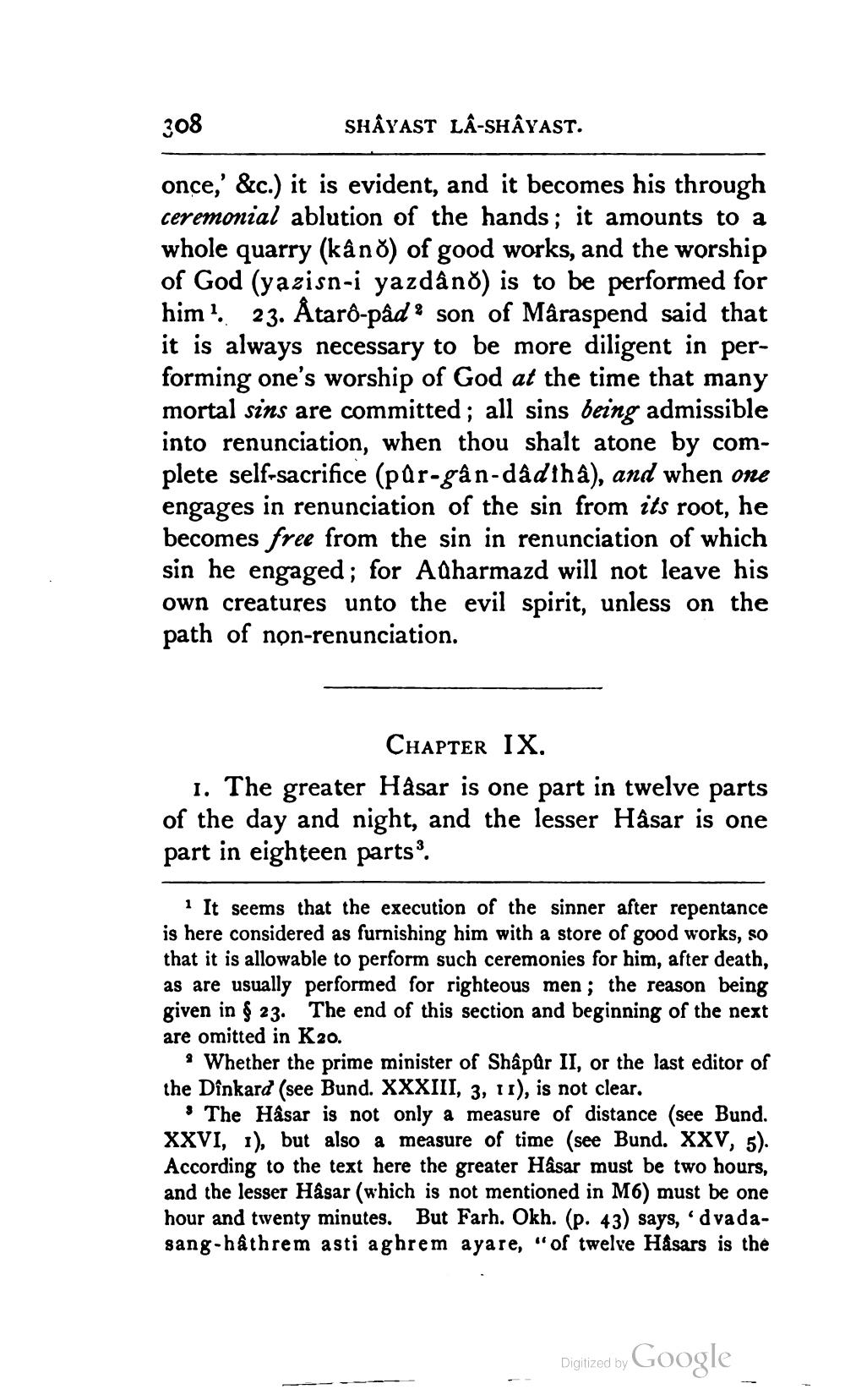________________
308
SHẦYAST LÂ-SHAYAST.
once,' &c.) it is evident, and it becomes his through ceremonial ablution of the hands; it amounts to a whole quarry (kâno) of good works, and the worship of God (yazisn-i yazdâno) is to be performed for him ?. 23. Åtarô-pâd son of Mâraspend said that it is always necessary to be more diligent in performing one's worship of God at the time that many mortal sins are committed; all sins being admissible into renunciation, when thou shalt atone by complete self-sacrifice (par-gân-dâdthâ), and when one engages in renunciation of the sin from its root, he becomes free from the sin in renunciation of which sin he engaged; for Adharmazd will not leave his own creatures unto the evil spirit, unless on the path of non-renunciation.
Chapter IX. 1. The greater Håsar is one part in twelve parts of the day and night, and the lesser Hasar is one part in eighteen parts.
1 It seems that the execution of the sinner after repentance is here considered as furnishing him with a store of good works, so that it is allowable to perform such ceremonies for him, after death, as are usually performed for righteous men; the reason being given in § 23. The end of this section and beginning of the next are omitted in K20.
Whether the prime minister of Shâpůr II, or the last editor of the Dînkard (see Bund. XXXIII, 3, 11), is not clear.
The Hasar is not only a measure of distance (see Bund. XXVI, 1), but also a measure of time (see Bund. XXV, 5). According to the text here the greater Hasar must be two hours, and the lesser Håsar (which is not mentioned in M6) must be one hour and twenty minutes. But Farh. Okh. (p. 43) says, dvadasang-hâthrem asti aghrem ayare, "of twelve Hasars is the
Digitized by
Digjized by Google




